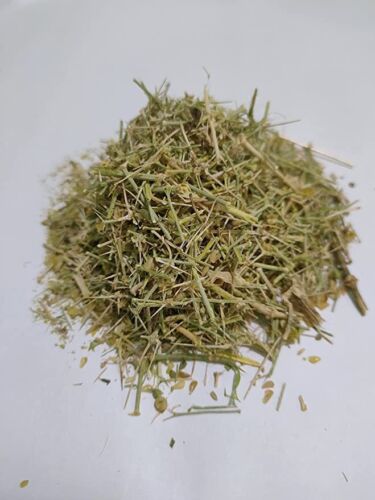Introduction

Fagonia, commonly known as Dhamasa in traditional Indian medicine, is a plant belonging to the Zygophyllaceae family. This plant has long been used in various folk medicine systems, particularly in Ayurveda and Unani, due to its wide range of therapeutic properties. Known for its resilience and adaptability, Fagonia thrives in arid regions and has been extensively researched for its medicinal value.
The plant’s scientific name is Fagonia cretica, but it is often referred to simply as “Dhamasa” in herbal circles. The plant’s potent leaves, roots, and stems contain several bioactive compounds that offer potential benefits for a variety of health conditions.
Forms of Fagonia (Dhamasa)
Fagonia is commonly available in several forms, including:
- Powdered Form: Dried and powdered leaves or roots of Fagonia are widely used in traditional medicines. It is often consumed in small doses, mixed with water, honey, or other herbal powders.
- Extracts: Concentrated liquid extracts of Fagonia are available and often marketed as supplements. These extracts can be taken orally or applied topically, depending on the health issue being addressed.
- Infusions and Decoctions: Fagonia can be boiled into a decoction or steeped in hot water to create an infusion. This is one of the most common methods used in Ayurvedic and Unani practices.
- Oils: Essential oils or herbal oils containing Fagonia extracts are sometimes used for topical application, particularly for skin ailments.
- Capsules: Fagonia supplements in the form of capsules or tablets are also available, providing a convenient method of consumption.
Benefits of Fagonia (Dhamasa)
Fagonia is considered a powerhouse of health benefits, primarily due to its wide array of bioactive compounds, such as alkaloids, flavonoids, saponins, and tannins. Some of the key benefits include:

- Anti-Inflammatory Properties: Fagonia is known for its potent anti-inflammatory effects. It has been traditionally used to treat inflammatory conditions such as arthritis, gout, and muscle pain. The compounds in Fagonia help reduce swelling and inflammation by inhibiting inflammatory pathways.
- Antioxidant Effects: The plant is rich in antioxidants, which help neutralize harmful free radicals in the body. This antioxidant activity is linked to reduced oxidative stress and may lower the risk of chronic diseases like heart disease and cancer.
- Liver Health: Fagonia has been traditionally used as a liver tonic. Some studies suggest that it can help detoxify the liver, reduce liver enzyme levels, and improve overall liver function.
- Antimicrobial and Antifungal Properties: Fagonia has demonstrated antimicrobial properties, helping to fight bacterial and fungal infections. It is used in treating skin conditions like eczema, wounds, and other infections.
- Blood Sugar Regulation: Preliminary research indicates that Fagonia may have a role in controlling blood sugar levels. Some studies suggest that it can act as a natural remedy for managing diabetes by improving insulin sensitivity and reducing blood glucose levels.
- Digestive Health: Fagonia is often used as a digestive tonic. It is believed to aid in digestion, relieve constipation, and soothe the stomach in conditions like gastritis and ulcers.
- Anti-Cancer Potential: Some research suggests that Fagonia may possess anti-cancer properties. It is thought to inhibit the growth of cancer cells, particularly in cancers of the digestive system, although more clinical trials are needed to confirm its effectiveness.
- Skin Health: Due to its anti-inflammatory, antimicrobial, and antioxidant properties, Fagonia is often used to treat skin disorders, including acne, rashes, and wounds. The topical application of Fagonia extracts may promote faster healing and reduce scarring.
- Cardiovascular Health: Some studies have suggested that Fagonia may improve heart health by regulating cholesterol levels and reducing high blood pressure.
Side Effects of Fagonia (Dhamasa)
While Fagonia offers numerous health benefits, it’s important to be aware of potential side effects and precautions. Like any herbal remedy, misuse or overconsumption can lead to unwanted effects.

- Allergic Reactions: Some individuals may be allergic to Fagonia or its compounds. Symptoms of an allergic reaction can include skin rashes, itching, and swelling. Always perform a patch test before using topically or starting oral consumption.
- Gastrointestinal Distress: High doses of Fagonia may lead to gastrointestinal discomfort, including nausea, vomiting, diarrhea, or stomach cramps. It is important to stick to recommended doses to avoid these issues.
- Hypoglycemia: Given its potential to lower blood sugar levels, people with diabetes who are on medication to control their blood sugar should use Fagonia cautiously. It may enhance the effects of diabetes medications, possibly leading to hypoglycemia (low blood sugar).
- Interactions with Medications: Fagonia may interact with certain medications, including those used for hypertension, diabetes, and blood thinners. It is essential to consult a healthcare provider before using Fagonia, especially if you are on prescription medications.
- Pregnancy and Breastfeeding: There is limited research on the safety of Fagonia during pregnancy and breastfeeding. Pregnant or nursing women should avoid using Fagonia unless advised by a healthcare professional.
- Toxicity in Excess: Excessive consumption of Fagonia may lead to toxicity, with symptoms like dizziness, lethargy, and confusion. It is crucial to follow dosage instructions to avoid overdosing on the plant.
This Article is for Basic Information. Contact a professional doctor before using it.
HAKEEM KARAMAT ULLAH
+923090560000




